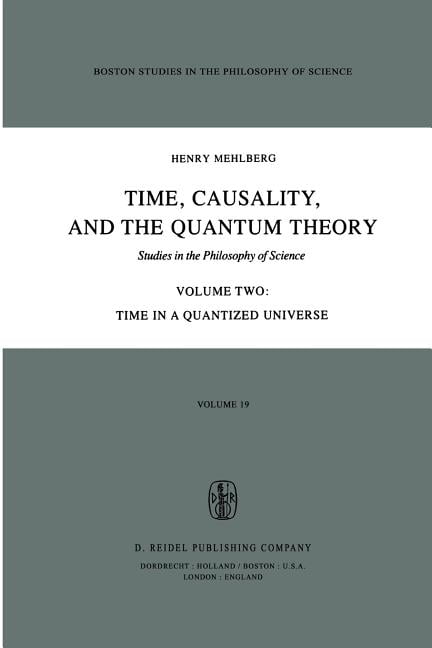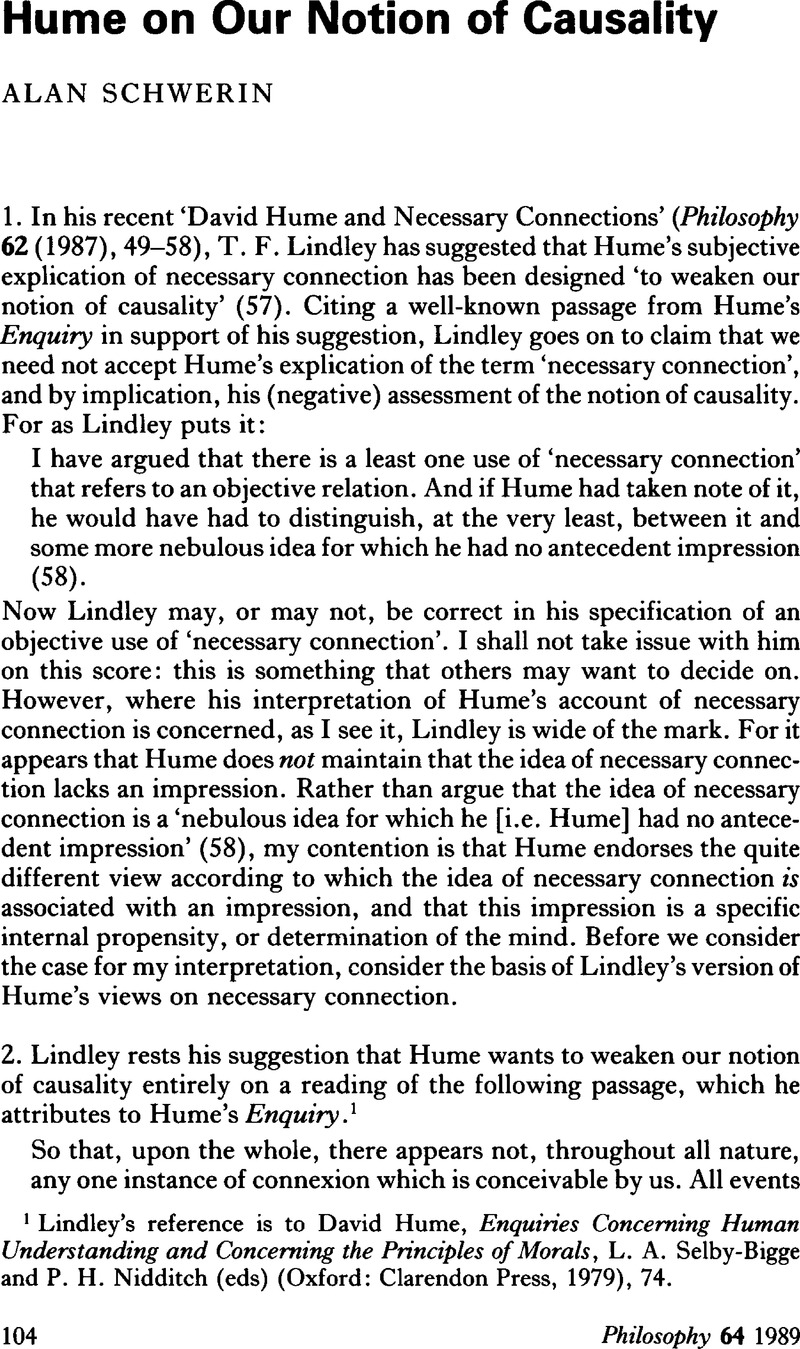

If the Cause is A and the Effect is B, then the Northern Italian Renaissance, was BOTH B, as well as A it was the result of prior influences, while also serving as the influencer or catalyzer of newer civilizations and movements. And from this diagram, we can see how The Northern Italian Renaissance was both the Effect, as well as the Cause, within a Historical Continuum. 4 (2004) 449488 449 Kant’s Model of Causality: Causal Powers, Laws, and Kant’s Reply to Hume ERIC WATKINS KANT’S VIEWS ON CAUSALITY have received an extraordinary amount of scholarly at- tention, especially in comparison with Hume’s position.
#CAUSALITY PHILOSOPHY PLUS#
Greco-Byzantine intellectual expats who settled into the Veneto 600 plus years ago and helped jumpstart The Renaissance.ĪLL of these prior causes helped spawn and generate, The Northern Italian Renaissance. KANT’S MODEL OF CAUSALITY 449 Journal of the History of Philosophy, vol.The Toledo/Iberian Translation movement during the Late Middle Ages.

The Age of Scholasticism/The Late Middle Ages.Reality Coronavirus, Correlation & Causation Martin Jenkins uses the virus to test our knowledge of causation. Yet, at the same time, The Northern Italian Renaissance was not created from a vacuum it too, was the result or an Effect related to an earlier Cause(s). To have complete access to the thousands of philosophy articles on this site, please. The metaphysical issue concerns the nature of the connection between cause and effect: How. One can view The Northern Italian Renaissance as a Causal Force which sparked and helped create an equally advanced cultural movement. The causality debate has been centered on two issues, one metaphysical, the other epistemic. The Northern Italian Renaissance-(1400-1650), caused or helped cause The European-(and in particular, French) Enlightenment-(late 1600's-early 1800's). Every Historical Cause has an expected effect or result yet, inherent in every historical effect, is also, a new historical cause and conversely, inherent in every historical cause is also, a new historical effect. Manila: Sinagtala Publishers, 1991.BRIEF OVERVIEW (Click on link to jump to corresponding.

But, what is interesting about Historical Causation is its paradoxical nature. OUTLINE AND GUIDE QUESTIONSbased on the book of Tomas Alvira, Luis Clavell & Tomas Melendo, Metaphysics. Yet, there is another field which also studies is called, Historical Causation or if you prefer, Causality in History.īoth Historians and Philosophers of History have been studying the causal nature of History for centuries. Analytical Philosophy, Metaphysics, as well as, The Philosophy of Science). 428/1037), whose works were thought to be ignored by the Ottoman scholarship according to modern scholarship.The words, "Cause" and "Effect", are studied in fields, such as Physics, Cosmology and particularly Philosophy-(i.e. Among the two, Ḫocazāde especially developed a unique position by incorporating synthetic elements from Graeco-Arabic philosophy based on the works of Ibn Sīnā (d. 887/1482), who arbitrated among classical Graeco-Arabic philosophy ( falsafa) and philosophical theology ( kal ām). It is one of the necessary rational principles for (p. This principle states that for everything there is a cause. 505/1111) The Incoherence of the Philosophers, this presentation will concern the theories of causality purported by two prominent fifteenth-century Ottoman scholars, Ḫocazāde Muṣliḥuddīn (d. The principle of causality is one of the primary propositions known to people in their ordinary lives. Islamic philosophy experiences a profound tension between these two ideasthe Quranic legacy of Gods will and the idea of independent causes leading to effects. In causal theory, one finds an apparently necessary connection between cause and effect. Focusing on two important adjudications written on the famed twelfth-century theologian Abū Ḥamīd al-Ghazālī’s (d. CAUSATION IN ISLAMIC PHILOSOPHY According to the Quranic position, God is the voluntary creator of the universe. mu ḥ aqqiq), who synthesized different domains of knowledge, including theology, philosophy, or Sufism. mu ḥā kama) produced by certain celebrated scholars called the “verifiers” (sing. The fifteenth-century Ottoman world was a dynamic seedbed of philosophical and theological debates, a period marked by numerous adjudications (sing.


 0 kommentar(er)
0 kommentar(er)
